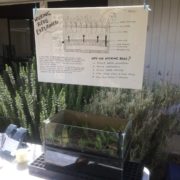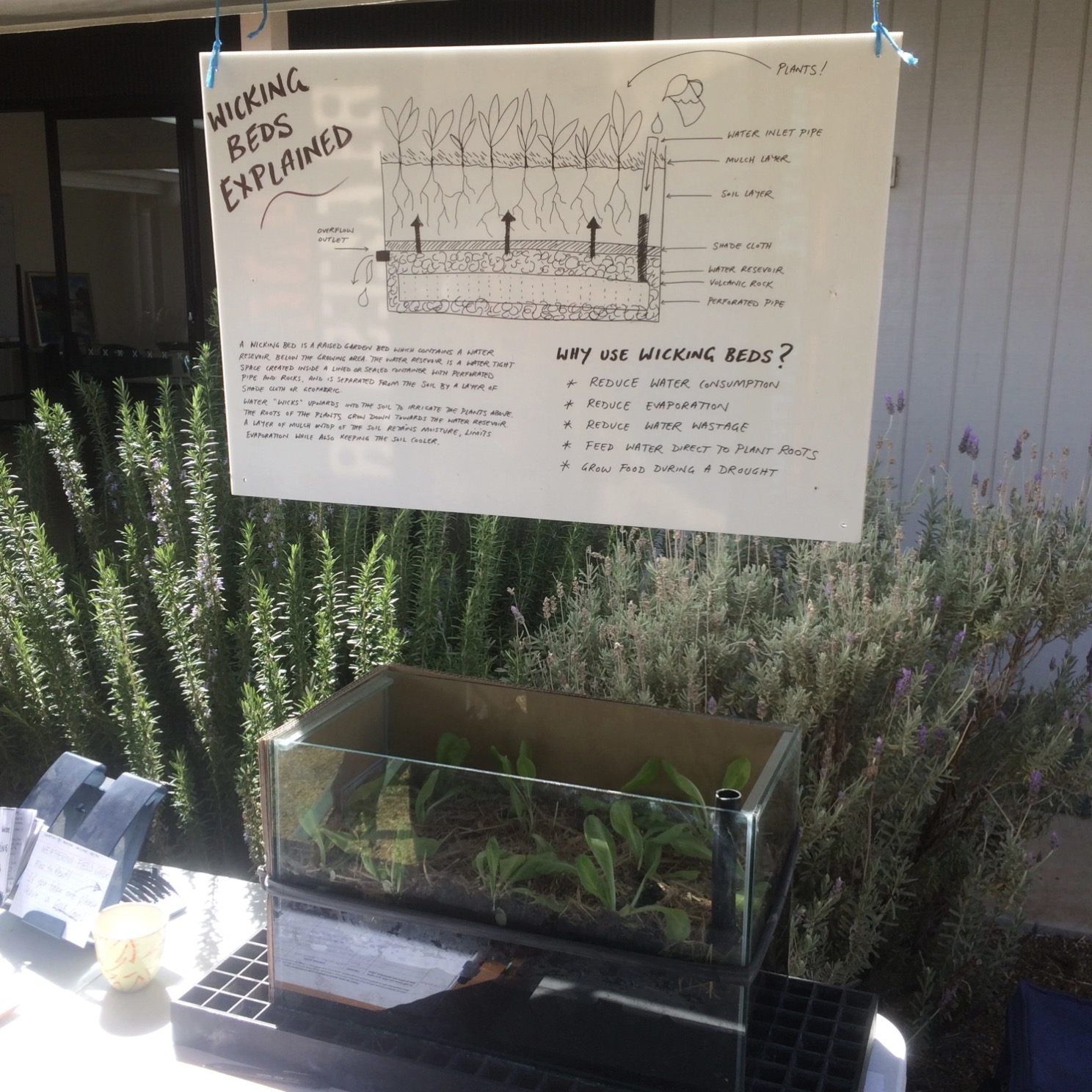 With Dr Astrida Neimanis (USYD), Tessa Zettel (Artist-Researcher), and Dr Jennifer Hamilton (UNE)
With Dr Astrida Neimanis (USYD), Tessa Zettel (Artist-Researcher), and Dr Jennifer Hamilton (UNE)
Events:
- Tuesday, March 3: 5pm for 5.00-7pm – Public Lecture: Dr Astrida Neimanis “We are all bodies of water; we are always weathering” at Oorala Lecture Theatre, University of New England, Armidale Campus.
- Wednesday, March 4: 7.30am-9am – Community Weathering Station Breakfast, Lake Madgwick UNE Armidale Campus
- Wednesday, March 4: 2pm-4pm – Weathering the Apocalpyse: Survival Skills Workshop – A1 Arts Theatre Stage, UNE Armidale Campus.
For more information and to register for these events.
Tuesday, March 3: 5.00 – 7pm – Public Lecture: Dr Astrida Neimanis “We are all bodies of water; we are always weathering” at Oorala Lecture Theatre, University of New England, Armidale Campus.
The summer of 2019/2020 was marked by extreme weather events involving too little, then too much, water. These meteorological and hydrological crises are linked to bigger planetary changes, but we also experience them as bodies: we are all bodies of water, and we are all bodies of weather. How we experience these events—and how we contribute to them–are tied to our specific historical, social, cultural and geographical locations in the world. In this lecture Astrida Neimanis offers a watery foray into over a decade of research that brings together feminist theory, place-based thinking, embodied research methods, and our current environmental situation. How might understanding ourselves as bodies of water help us weather these troubling times in more socially just and ecologically attuned ways? If you are not on campus, join via Zoom.
Astrida Neimanis is a Senior Lecturer in the Department of Gender and Cultural Studies at the University of Sydney and a Key Researcher with the Sydney Environment Institute. Her research interests include posthuman feminisms, experimental writing methods, nature/culture, water, climate change, environmental humanities, environmental justice, embodiment, (bio)coloniality, biotechnologies and feminist STS. She is particularly interested in the common and queer intersections of these things. Her book Bodies of Water: Posthuman Feminist Phenomenology is available Open Access via Bloomsbury Collections.
Wednesday, March 4: 7.30am-9am – Community Weathering Station Breakfast, Lake Madgwick UNE Armidale Campus
This is a free event where we gather by a stormwater lake, eat and drink and think about big things like colonisation and climate change
REGISTRATION ESSENTIAL FOR CATERING PURPOSES
Weathering names a reflective practice of attending to one’s relationship with the diversity of environmental forces we live amongst, and it also seeks to think about how these forces are differently felt in different bodies. We are always weathering, but not always in the same way. This breakfast opens up space to reflect on these environmental forms of weathering alongside colonial stormwater management architectures. How is the weather managed for us and to what end? A question to think about while eating a croissant.
Coffee, Tea, Fruit and Pastry will be provided.
BYO: Mug, Picnic Rug, any other breakfast stuffs and Note Book
The event is supported by the Faculty of Humanities, Arts and Social Sciences at the University of New England. Donations can be made to the N?wara Aboriginal Corporation (Formerly the Anaiwan Language Revival Program).
Wednesday, March 4: 2pm-4pm – Weathering the Apocalypse: Survival Skills Workshop – A1 Arts Theatre Stage, UNE Armidale Campus.
REGISTRATION ESSENTIAL
Why do preppers get to have all the fun? Skilling up for a feminist, anticolonial and demilitarised response to climate emergency
What is survival? What is the apocalypse? Here are two answers: first, as Callum Clayton Dixon shows in his recent book, Surviving New England, Aboriginal people from these tablelands have already survived the apocalypse of colonial invasion. Second, since the Cold War, anxieties of a world-ending apocalypse have been structured by nuclear fears. This explosion ends it all, and the few survivors remain in underground bunkers until the dust settles. But what if climate change plays out in uneven ways across time? What if it is more like a civilisational whimper than one big bang. If this is the case, a bunker might not be that useful after all.
In the spirit of acknowledging that climate change is not the first apocalyptic event to occur in Armidale and rejecting both spectacular militaristic apocalypticism and business as usual ‘late liberalism’ (to borrow Elizabeth Povinelli’s term), this workshop raises questions, and eyebrows, at certain practices that facilitate survival and opens up space for thinking, making, doing alternatives
Why weathering? Why now?
Calls for resilience come from almost all sectors of society: economics, mind and body health, planning and engineering names a few. The stated objective is to encourage individuals and communities to bounce back from whatever comes their way, to become better and stronger. This industrial-age metaphor is unhelpful for humans because our bodies are all marked by events in our lives, especially the really good and really bad ones. Even if the marks are invisible or look different on each person, they are there. We want to heal and arguably tend towards it (until we don’t, of course), but even in healing, regrowing and restoration we are scarred and changed—weathered—by life. We are, after all, living animals.
In contrast to resilience, the concept of weathering informs a mode of thinking and being that seeks safe passage through storms, while at the same time insisting that not everyone will come through in the same way, that in all our difference and diversity, we will be changed by various exposures.
Drought, fires, dust storms, heatwaves, flash floods, novel viruses, ongoing colonialism and extractivism, rising inequality, rising sea levels, rising cost of living, fewer jobs and the evident acceleration of the feedback loops promised in a time of climate change: this list offers just some of the serious things we are weathering at the moment. At the same time, while some have the luxury of being concerned about the end of the world, for Indigenous cultures globally the world has already ended, and the current status quo is a post-apocalyptic situation. On top of this, for those living with little money, anxiety about the end of the month commands all attention.
Over two days at the beginning of T1 2020, Jennifer Hamilton supported by the Faculty of Humanities, Arts, Social Sciences and Education, brings feminist theorist Dr Astrida Neimanis and artist-researcher Tessa Zettel together in a series of events to collaboratively reflect on our contemporary moment. We offer weathering up as a theoretical concept, descriptor of embodiment and political metaphor for justice-seeking research in a time of environmental crisis.
For more information and to register for these events.
